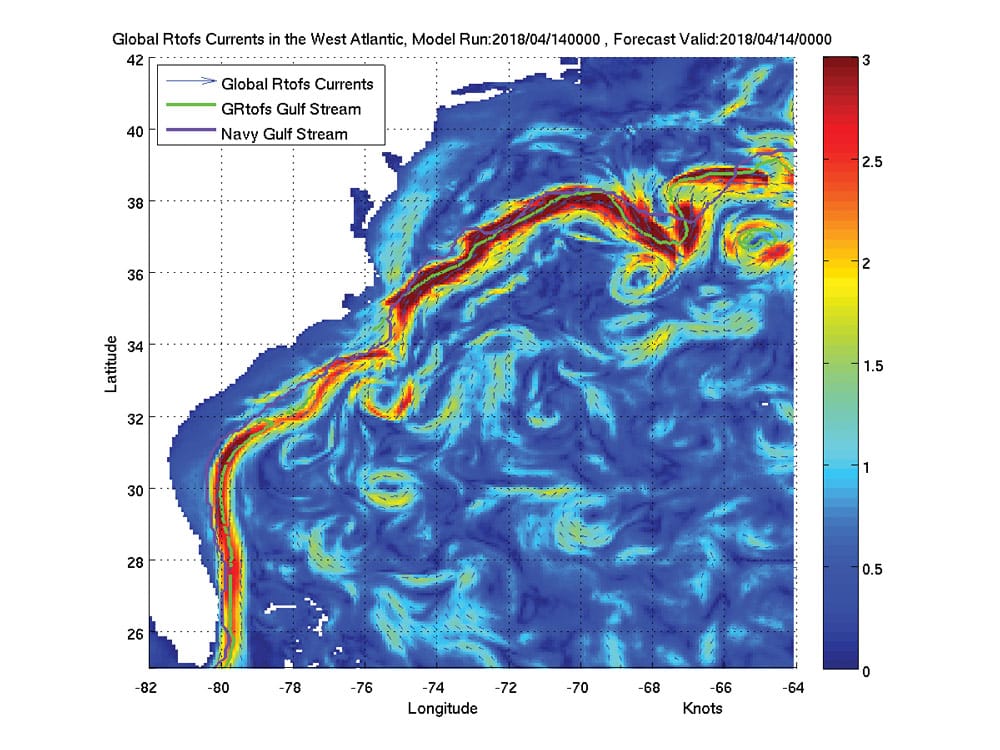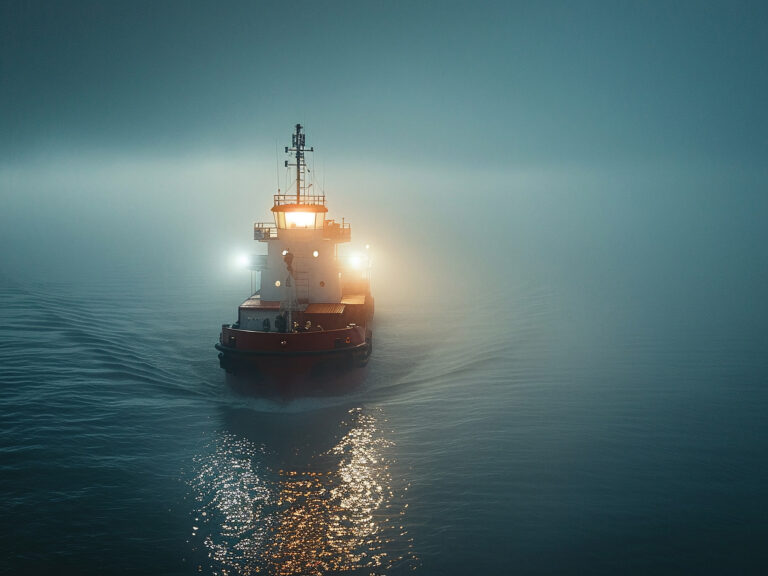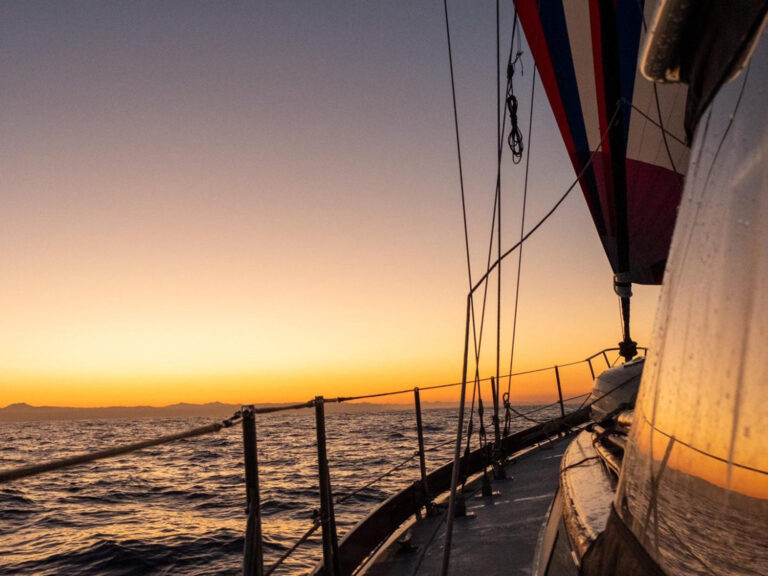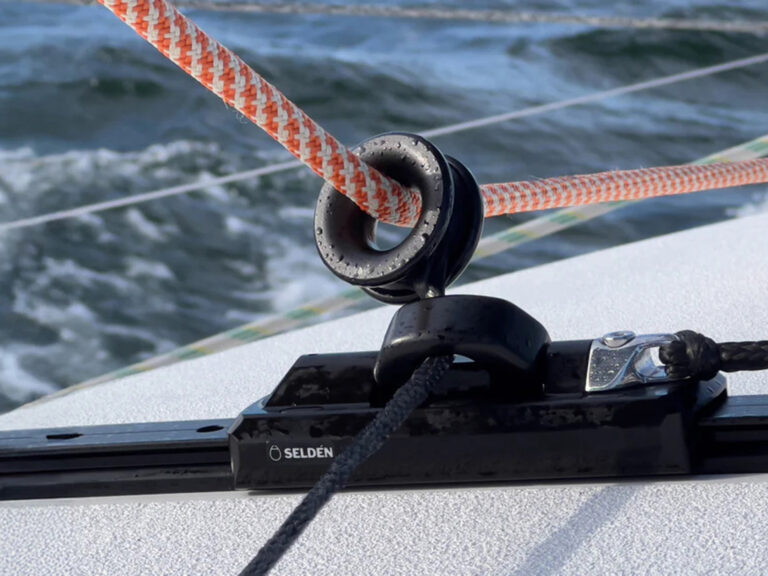
Crossing the Gulf Stream is a rite of passage for many East Coast offshore sailors. I’ll never forget my first time. The Stream seems to generate its own weather, and the precipitous clouds on the horizon ahead were the initial clue that we were approaching. Then there was the sudden spike in the temperature of the ocean, up into the high 70s, as confirmed by the boat’s seawater thermometer. The water itself shifted to a darker shade of blue, flecked with yellow patches of sargassum. And with a slight northerly breeze (thank God it was slight) leaning into the northward flowing current, the waves stood up into a progression of steep but reasonable, negotiable hills, the boat rising and falling with their flow. It was all very memorable. The Gulf Stream, the so-called “river in the sea” that trucks along in places at a good 4 to 5 knots, is truly a force of nature.
And, remarkably, it is also slowing down.
Such was the conclusion of a pair of recent scientific studies focused on the Atlantic meridional overturning circulation (AMOC) — an ocean circulation system that includes the Gulf Stream — recently published in the journal Nature. Simply put, a section of the warm, salty surface waters of the Stream eventually peel off to form the North Atlantic Current which ascends into the high, chilled Nordic latitudes, heating the atmosphere on the way. There, the water cools and the weight of its salinity causes it to plunge into the depths, where it begins a return journey down the coasts of North and South America. The entire cycle has been likened to an “ocean conveyer belt” that plays a key role in Earth’s climate by exchanging warm water from the equator with cold water from the Arctic.
And the conveyer belt, so crucial to distributing heat across the planet, is not as quick as it used to be.
According to the Nature report, the two studies that issued this finding used vastly different methodologies: “classic examples of ‘top-down’ and ‘bottom-up’ approaches.” The former based its report on direct measurements of sea-surface temperatures; the latter relied on measuring deep-sea sediment cores that reflect the speeds of the bottom waters on their return flow of the AMOC (stronger currents move thicker grains of sand). But both determined that the weakened AMOC has declined in strength by 15 percent, which the Washington Post reported as “a decrease of 3 million cubic meters of water per second, the equivalent of 15 Amazon Rivers.”
Mercy.
In science, as in life, one thing leads to another. In this case, perhaps ironically, the rapidly melting glaciers of the Greenland ice cap and the vanishing sea ice above the Arctic Circle are playing a significant role in this equation. Yes, those waters are cold, but they’re also fresh, and float atop the surface; their mass infusion into the briny sea disrupts the formation of the dense water that’s a key component in the spinning AMOC.
So, what does that mean to sailors and, you know, human beings? Well, should the brakes on the Atlantic circulation continue to be pumped, among other things, it could result in drastic changes in European weather, dramatic fluctuations in hurricane frequency and an abrupt rise in sea levels on the East Coast, with a backed-up Gulf Stream having no place else to go. There are lots of other scenarios, and none of them are great.
One of the central questions of our time, of course, is the degree to which man-made sources have contributed to climate change, and in this case, what role they played in the AMOC slowdown. Interestingly, the authors of one study attribute the cause mainly to human-induced factors (i.e., those that have played a part in the relatively new phenomenon of swiftly melting ice), while those of the other suggest it probably began for natural reasons around 150 years ago but has since been aided and abetted by our own collective impact on the changing climate.
As with contemporary politics, there is no clear consensus.
So, for now at least, we’ll leave it to the noted oceanographer/poet Bob Dylan, who once sang, “Come gather round people; Wherever you roam; And admit that the waters; Around you have grown; And accept it that soon; You’ll be drenched to the bone.” For, yes, the times they are a-changin’.
Herb McCormick is CW’s executive editor.








